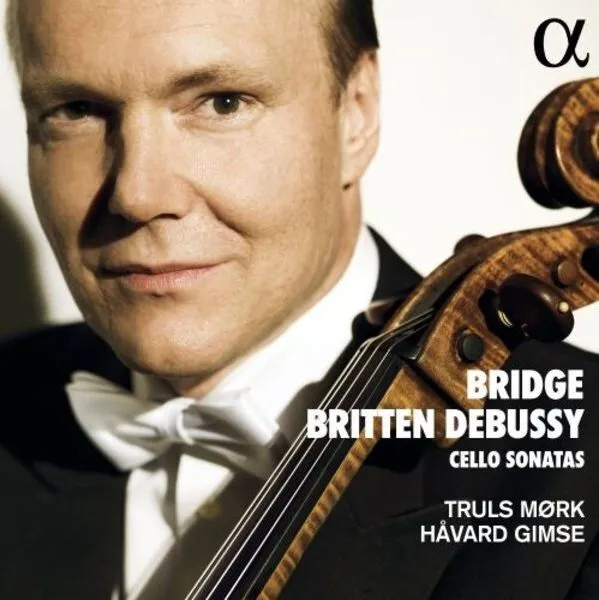
Bridge • Britten • Debussy • Janáček Bridge: Cello Sonata; Britten: Cello Sonata; Debussy: Cello Sonata; Janáček: Pohádka Truls Mørk (cello), Håvard Gimse (piano) Alpha Classics ALPHA560 71:01 mins
Four of the 20th century’s greatest works for cello and piano: three of them famously recorded back in the 1960s by Rostropovich and Britten – a hard act to follow. Yet the Norwegian duo, Truls Mørk and Håvard Gimse, rise fully to the challenge in close yet lucid recorded sound that achieves an exemplary balance between cello and piano. Marginally less juicy of tone and idiosyncratic of phrasing than Rostropovich, Mørk brings a classical poise and eloquence to his phrasing and a marvellous sensitivity to detail, while Gimse is fully alive to the very different styles of piano writing in these four works.
The qualities of the new recording are especially favourable to Frank Bridge’s big two-movement Sonata – composed athwart the outbreak of the First World War, which horrified him – where the old recording suffered from slightly cloudy piano sound. As Mørk soars through the fraught lyricism of its first half, one hears clearly how Bridge subtly inflected even the most seemingly conventional piano figuration with his own individuality. And if the new recording of Debussy’s war-time Sonata is less dark and rhapsodic than the Rostropovich-Britten, it exemplifies the more enduring characteristics of French culture he sought to uphold.
The fugitive flights of melody and figuration comprising the three whimsical movements of Janáček’s Pohádka (Fairy Tales) demand a glancing, mercurial response which they certainly receive here, while the Britten Sonata somehow emerges as a weightier, more substantial work than in the original recording by its dedicatee and composer – special though that will always remain.
Bayan Northcott